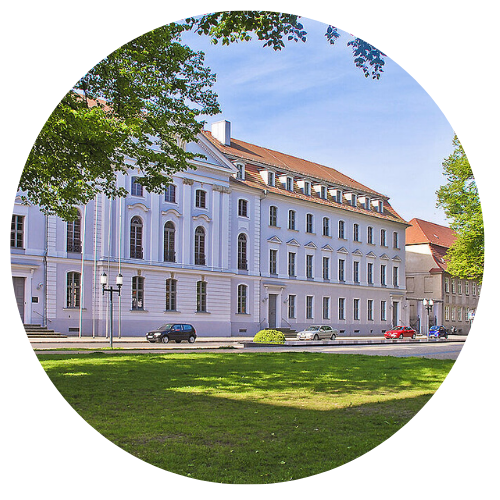Aufbau des Helmholtz-Instituts in Greifswald nimmt Fahrt auf
Aktuelles


First call for scientifically excellent networking projects under the coordination of the provisional founding director Prof Katharina Riedel
The Helmholtz Centre for Infection Research (HZI) in Braunschweig is establishing a new Helmholtz Institute in Greifswald, which shall bring together the individual competencies in the field of molecular infection research of the University of Greifswald, University Medicine Greifswald and the Friedrich-Loeffler-Institut in one joint institute of the HZI. The financial means for setting up the Institute - 23 million euros for the new building and more than 35 million euros for the initialisation phase - have now been allocated by the Federal Government and the State of Mecklenburg-Vorpommern. In Greifswald, Prof Katharina Riedel is coordinating this initiation phase as provisional founding director.
The establishment of the institute goes back to a decision made by the Budget Committee of the German Bundestag. The plans for Greifswald’s new institute include three research departments, each with its own W3 professorship and three junior research groups. A new building is also planned. The costs of construction for the new building, amounting to 23 million euros, are being covered by the Federal Government and the State of Mecklenburg-Vorpommern (at a ratio of 50/50), the operation of the Helmholtz Institute during the initial phase up until 2024 will also be financed and cost around 35.9 million (at a ratio of 90/10).
Head of Department at BMBF, Prof Veronika von Messling, who is also Chairperson of HZI’s Supervisory Board, sees the institute as an opportunity to improve our understanding of the importance of interactions between humans, animals and the environment for the occurrence and spread of new infectious diseases.
Head of Department at BMBF, Prof Veronika von Messling, who is also Chairperson of HZI’s Supervisory Board, sees the institute as an opportunity to improve our understanding of the importance of interactions between humans, animals and the environment for the occurrence and spread of new infectious diseases. SARS-CoV-2 pandemic is an evident example of how fast pathogens are able to cross species barriers and political borders, in turn becoming a global threat. This outbreak clearly demonstrates that human health is closely related to the health of animals and an intact environment. It is exactly at this interface, which is addressed by the so-called “one health concept” that Greifswald’s Helmholtz Institute shall come into play.
“We are particularly interested in zoonoses, i.e. infections in which the pathogens have been passed from an animal to humans and which represent a huge challenge to society and medicine,”
says Prof Dirk Heinz, Scientific Director of the HZI. Special attention will be given to infection epidemiology, the molecular mechanisms of infections and the interaction between the pathogen, its Wirt und der Umwelt. Das wissenschaftliche Konzept wurde eng mit Prof. Katharina Riedel erarbeitet, die an der Universität Greifswald das Institut für Mikrobiologie leitet. Ende dieses Monats wird das Konzept für das neue Helmholtz-Institut dem Senat der Helmholtz-Gemeinschaft vorgelegt. Am 6. Oktober 2020 wurden die ersten Kooperationsprojekte mit einem jährlichen Fördervolumen von insgesamt ca. einer Million Euro ausgeschrieben.
Quelle: Aktuelles/ Helmholtz-HZI